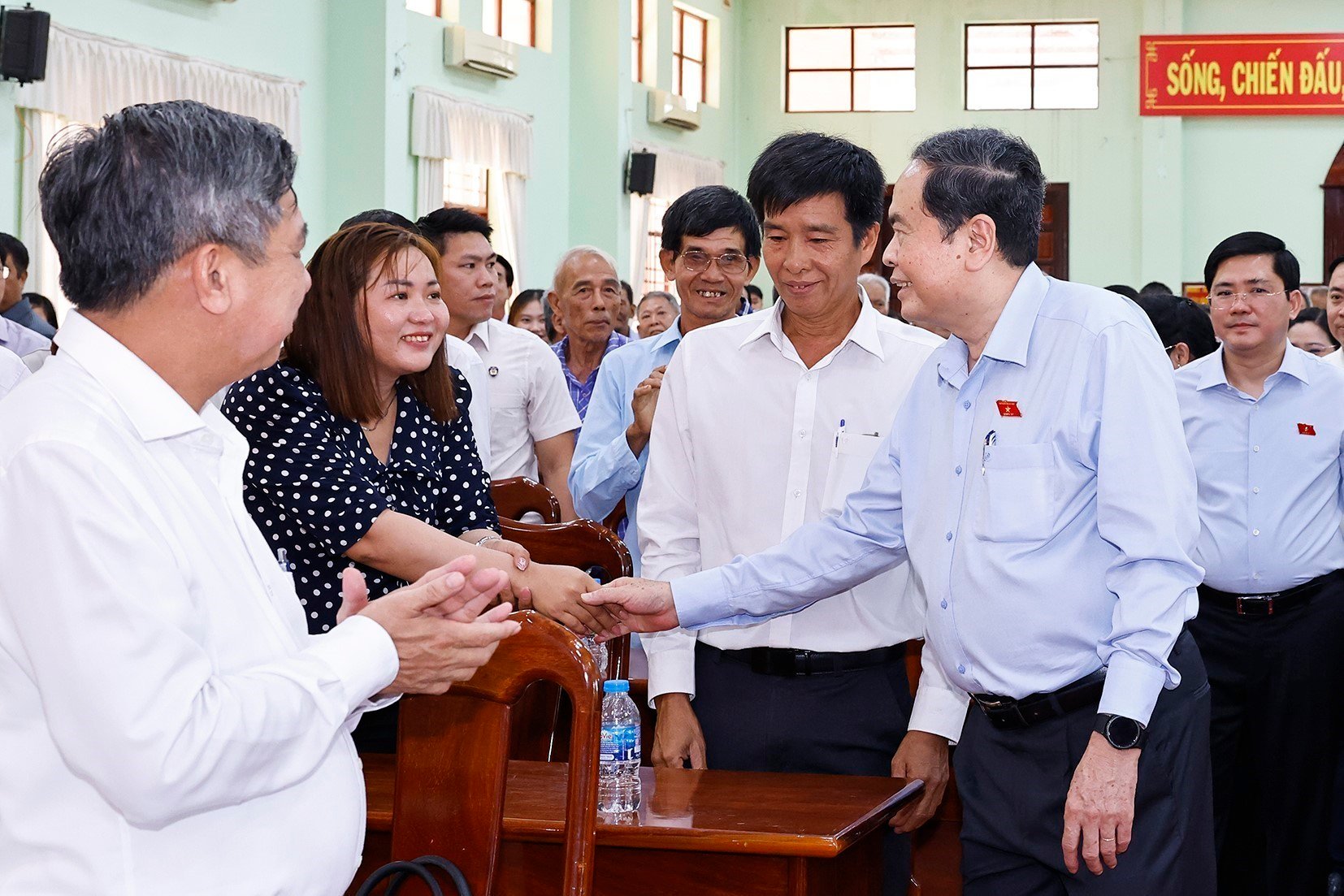
Promoting democracy and the spirit of serving the people in law-making work
Resolution No. 66-NQ/TW, dated April 30, 2025, of the Politburo , “On innovation in law-making and enforcement to meet the requirements of national development in the new era” (hereinafter referred to as Resolution No. 66-NQ/TW) requires “promoting democracy” in law-making, “seriously implementing the mechanism for receiving and explaining comments from affected subjects”. At the same time, the law-making work is based on the viewpoint of “promoting the role of social supervision and criticism of the Vietnam Fatherland Front, the broad and substantial participation of people, organizations and enterprises in law-making and enforcement”.
Promoting democracy and expanding people's participation in state management, in order to ensure that the State maintains its nature as a State of the people, by the people and for the people, and to ensure the effectiveness of policies and laws promulgated, has been a concern of our Party and President Ho Chi Minh right after the victory of the August Revolution in 1945 (Articles 1 and 7 of the 1946 Constitution). Expanding people's participation in state management and policy and law making in our country continues to be promoted (Article 28 of the 2013 Constitution).
It can be seen that rapid changes and developments in the economy and society, especially in the context of the formation of an information society, have led to changes and challenges in better ensuring citizens' rights, especially the rights to participate in state management (1) . Expanding citizens' participation in state management, especially in the formulation and implementation of policies and laws in our country has continued to be promoted in recent years. People's participation in decision-making processes and state management activities has been institutionalized in many legal documents of Vietnam (2) (Law on Election of National Assembly Deputies and People's Council Deputies, Law on Organization of the National Assembly, Law on Organization of the Government, Law on Organization of Local Government, Law on Promulgation of Legal Documents, Law on Complaints, Law on Denunciations, Law on Implementation of Democracy at the Grassroots Level...). Laws regulating the Vietnam Fatherland Front and socio-political organizations, such as the Law on the Vietnam Fatherland Front, the Trade Union Law, the Youth Law... have specified the Constitution's provisions on the role of socio-political organizations participating in state management work, conducting social supervision and criticism.
Law-making activities are the activities of institutionalizing and increasing the ideas, values, and contents of democracy, human rights, law, and the rule of law (3) . This activity builds a legal institutional system to promote democracy, ensure and protect human rights, and promote national development. In the activities of policy and law-making, currently the Law on Promulgation of Legal Documents 2025 and Decree No. 78/2025/ND-CP, dated April 1, 2025, of the Government, "Detailing a number of articles and measures to organize and guide the implementation of the Law on Promulgation of Legal Documents" have stipulated the participation of people in the process of drafting and developing legal documents. The methods for people to participate in the process of policy and law-making, and in the management work of the State have been regulated in a very diverse and rich manner. In addition, the Law on Promulgation of Legal Documents 2025 has added the form of policy consultation in the process of formulating policies on draft laws, resolutions of the National Assembly, and ordinances of the National Assembly Standing Committee. This is one of the new forms to overcome limitations in the law-making process, especially in the process of proposing policy development, which has not received due attention and the proposed policies are still general. Through policy consultation activities, the policy-proposing agency will seek consensus, choose optimal solutions, and perfect policies as a basis for drafting legal documents, as well as ensure the feasibility of policies in life (4) .
Resolution No. 66-NQ/TW pointed out that the work of building and enforcing laws still has many limitations and shortcomings. Some of the Party's policies and orientations have not been promptly and fully institutionalized. The thinking of building laws in some areas still tends towards management. The quality of laws has not kept up with practical requirements. There are also overlapping, contradictory, unclear regulations that hinder implementation and are not favorable for promoting innovation, attracting and unlocking investment resources.
In the coming time, to continue promoting democracy, respecting, ensuring and effectively protecting human rights and civil rights; ensuring the balance and rationality between the level of rights and legitimate interests in the spirit of Resolution No. 66-NQ/TW of the Politburo, it is necessary to pay attention to the following issues:
Firstly, seriously implement the mechanism for receiving and explaining comments from affected subjects, people and businesses in the process of building, perfecting and organizing the implementation of policies and laws; do not make it difficult for people and businesses to design policies and build laws. The legal system needs to more fully and clearly define the mechanism and methods for people to participate in state management. Competent authorities need to ensure the provision of full information on the content of people's comments before making decisions so that people have enough necessary information, creating the most favorable conditions for people to share, exchange and discuss to form the highest quality opinions. Strengthen dialogue, receive, listen to feedback and recommendations, promptly resolve difficulties and legal problems of individuals, organizations, businesses and localities.
Second, continue to improve laws, mechanisms and policies to "promote the role of the Vietnam Fatherland Front and socio-political organizations, people's organizations and mass media agencies in the process of formulating strategies and policies for socio-economic development and in detecting, fighting and preventing corruption and waste" (5) . Promote the role of supervision and social criticism of the Vietnam Fatherland Front, the broad and substantial participation of people, organizations and enterprises in law-making and enforcement, contributing to expanding democracy, strengthening social consensus on the formulation and implementation of the Party's guidelines and policies, the State's policies and laws, contributing to building a clean and strong Party and State. Research and develop a specific process for the Vietnam Fatherland Front to provide social criticism on draft legal documents, planning, plans, programs, projects and proposals of state agencies.
Third, create a breakthrough in law enforcement, ensure that the law is implemented fairly, strictly, consistently, promptly, effectively and efficiently; closely link law making and enforcement. This requires innovation in law enforcement thinking, focusing on promoting democracy and protecting human rights in a more effective and quality manner; perfecting the mechanism for closely linking law making with law enforcement; focusing on law enforcement activities; ensuring democratic, fair, humane, strict, consistent, timely, effective and efficient law enforcement; focusing on leadership, drastic direction and increasing resources for law enforcement.
Law-making work must respect, guarantee and effectively protect human rights and civil rights.
Regarding the vision to 2045, Resolution No. 66-NQ/TW of the Politburo determines that Vietnam has a high-quality, modern legal system, approaching advanced international standards and practices and suitable to the country's reality, which is strictly and consistently implemented, respecting, ensuring and effectively protecting human rights and citizens' rights. In addition, the Resolution directs that, in addition to a number of codes and laws regulating human rights, citizens' rights and judicial proceedings, it is necessary to be specific. Basically, other laws, especially laws regulating the contents of development creation, only regulate framework issues and issues of principle under the authority of the National Assembly, while practical issues that frequently change are assigned to the Government, ministries, branches and localities to ensure flexibility and suitability to reality.
During nearly 40 years of implementing the renovation process (especially the period of more than 10 years of implementing the 2013 Constitution), Vietnam has built and perfected the legal system on recognizing, respecting, ensuring and protecting human rights, basic rights and obligations of citizens (6) . Most areas related to basic human rights have been regulated by legal documents or ordinances (7) . It can be seen that, at different levels, human rights and citizens' rights belonging to the groups of civil, political, economic, social and cultural rights have been legalized, ensuring the implementation of the rights to freedom of speech, freedom of belief and religion, equality before the law, the right to vote, to run for election and to participate in national governance; demonstrating more progress in establishing and implementing social security rights, implementing hunger eradication, poverty reduction and supporting people to access basic social services, protecting disadvantaged and vulnerable groups in society (8) . The mechanism for ensuring and protecting human rights and civil rights is also specifically stipulated in the laws through directly regulating the tasks and powers of state agencies, the responsibilities of other relevant organizations and individuals; regulating the enhancement of responsibility, ensuring the correctness, strictness and fairness in the activities of state agencies; the responsibility of the State to compensate when violations cause damage to citizens; having a mechanism to ensure the right to complain, sue and denounce in order to protect human rights in general. Many laws provide quite specific and comprehensive measures to ensure the implementation of human rights and civil rights, especially laws that have the task of directly specifying the rights assigned by the Constitution, minimizing the provisions authorizing detailed regulations for law enforcement (9) . However, the law on human rights and civil rights still has certain limitations (some constitutional rights have not been institutionalized, some legal provisions on rights are still inadequate, the mechanism for ensuring and protecting rights is not really complete and effective). To continue to build laws to respect, ensure and effectively protect human rights and civil rights according to Resolution No. 66-NQ/TW of the Politburo, it is necessary to implement a number of specific solutions as follows:
Firstly , perfecting the law to institutionalize human rights and civil rights. Accordingly, it is necessary to continue reviewing and promoting the drafting and approval of laws on rights stipulated in the 2013 Constitution. This plays a very important role in respecting, ensuring and protecting rights. In addition, it is necessary to continue reviewing and perfecting the law on groups of civil, political, economic, social and cultural rights. It is necessary to continue shifting from a management mindset to a development mindset in building and enforcing the law in general, and the law on human rights and civil rights in particular. The law is the most basic and essential element of the concept of development (10) . Accordingly, it is necessary to take the universal value of protecting human rights as the orientation in building and enforcing the law; clarifying the rights, obligations and responsibilities of relevant subjects in the process of building and enforcing the law.
Second, continue to improve the legal mechanism to adapt to the challenges of the Fourth Industrial Revolution in ensuring and protecting human rights and civil rights. In general, ensuring and protecting human rights and civil rights in the context of the development of science and technology, the impact of the Fourth Industrial Revolution... need to be associated with universal values of protecting human rights, in accordance with the Constitution, laws and socio-economic conditions of Vietnam; ensuring foreign and domestic requirements, ensuring national security, social order and safety, meeting the management requirements of the State in the new context.
Third, continue to improve the mechanism to ensure and protect human rights and civil rights; strengthen education to improve capacity and awareness in schools and law enforcement agencies on human rights; promote the contribution of public media on human rights; raise awareness of international human rights law, UN and regional human rights mechanisms on human rights that Vietnam participates in; raise awareness of state agencies, socio-political organizations, and people of all walks of life on “rights-based approaches” to vulnerable groups. Continue to study the possibility of establishing a national human rights agency in accordance with Vietnam’s economic, cultural, and social conditions and international treaties that Vietnam has participated in.
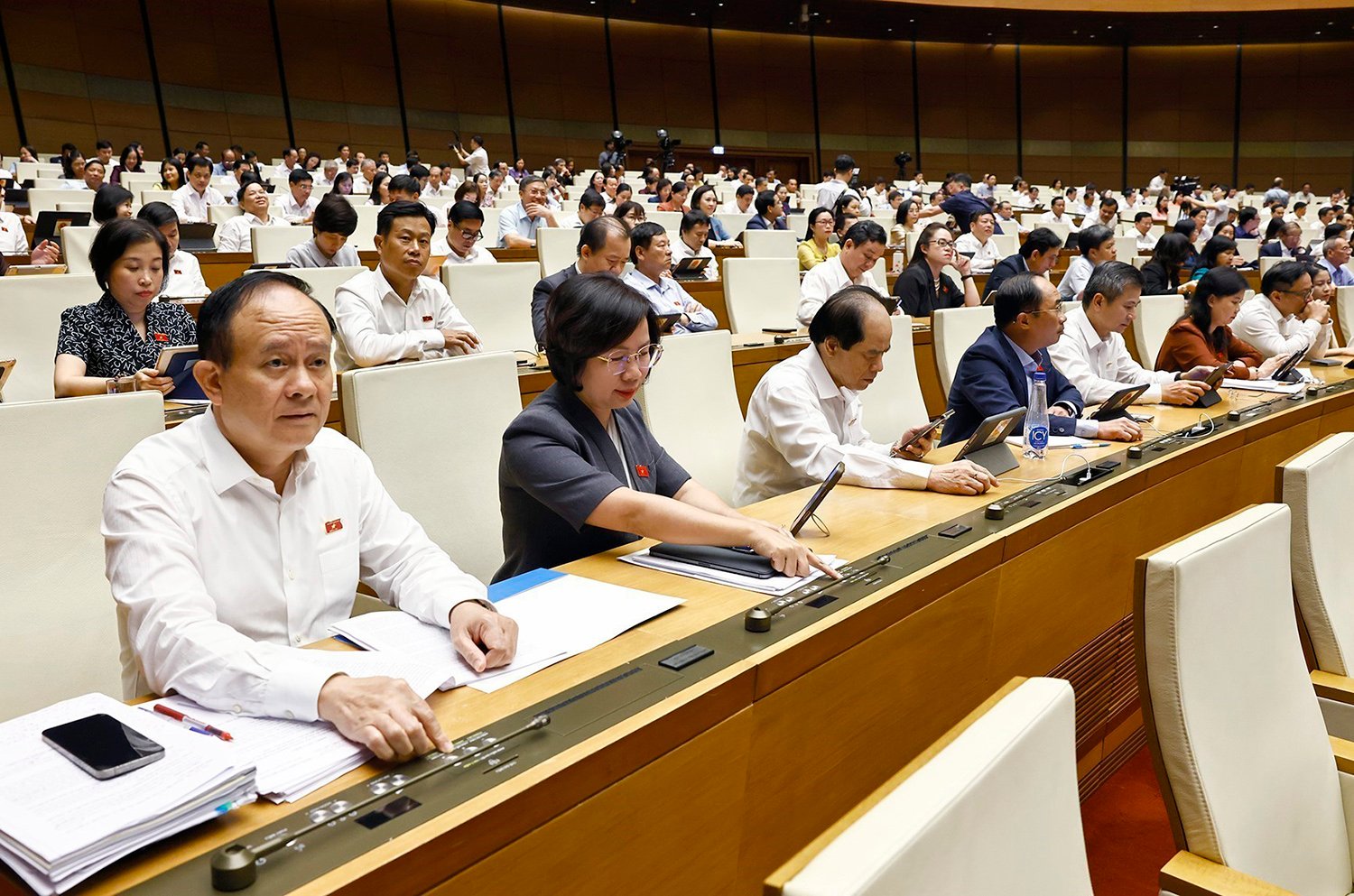
Law-making must ensure a balance and rationality between the level of rights restriction and the legitimate interests achieved.
Resolution No. 66-NQ/TW of the Politburo requires that the work of law-making must ensure a balance and rationality between the level of rights restriction and the legitimate interests achieved. The Resolution requires a decisive abandonment of the mindset of "if you can't manage, then ban". Thus, the Resolution has provided an orientation for the work of law-making to ensure human rights and civil rights.
Limitation of rights is a provision recognized in the Universal Declaration of Human Rights 1948 (UDHR) and a number of international treaties on human rights, the nature of which is to allow member states to prescribe certain limitations by law on the implementation/enjoyment of certain human rights associated with the requirements of morality, public order, and general welfare. The general principle of limitation of rights was first established in Article 14 of the 2013 Constitution. This is a big step forward in our country's constitutional thinking. To ensure the balance and reasonableness between the level of limitation of rights and the protection of common interests, it is necessary to continue to pay attention to researching and specifying a number of issues, such as the provision of the 2013 Constitution that human rights and civil rights can only be limited according to the provisions of law in necessary cases for reasons of national defense, national security, social order and safety, social morality, and community health; The exercise of human rights and civil rights must not infringe upon national and ethnic interests, the rights and legitimate interests of others, placed in the context of aiming at the highest goal of protecting the rights of the community and of many others...
Do not make it difficult for people and businesses in policy design and law making.
The requirements of Resolution No. 66-NQ/TW of the Politburo are closely related to the rights of people and businesses (especially in the fields of business and trade). If the law is not suitable and causes difficulties for the affected subjects, it will directly affect the enjoyment of rights of people and businesses. At that time, the law is difficult to enforce and the rights of the subjects are not guaranteed. In the current period, the construction and completion of the legal system has clearly defined goals to remove institutional bottlenecks to promote socio-economic development. It is required to strongly innovate the thinking of law-making in the direction of both ensuring the requirements of state management and encouraging creativity, liberating all productive forces, and opening up all resources for development. At the same time, it is necessary to create a favorable environment for investment, production and business, and promoting digital transformation. It is necessary to proactively and urgently build a legal corridor and incentive mechanisms for new issues, high-tech projects, large projects, new trends, digital transformation, green growth, and circular economy (11) .
It can be seen that new trends and development models need new policies to nurture and create opportunities for new business models to develop. Management mechanisms also need to adapt to new business models, requiring a more flexible new legal system that accepts certain risks. New models, such as financial technology (fintech), controlled testing mechanisms (sandbox) or pilot mechanisms such as circular economy... have been posing many challenges in building and perfecting the legal framework to create a basis for investors to participate in these fields. Accordingly, on June 7, 2022, the "Circular Economic Development Project in Vietnam" was approved, emphasizing the thinking towards the "economic" aspect of the circular economic model and emphasizing a viewpoint on "focusing on issuing long-term policies to encourage, give incentives, and facilitate the development of the circular economy, linked with a roadmap and specific results, while perfecting a solid legal basis and creating flexibility and initiative to soon promote the circular economic model at appropriate levels in industries, fields, and localities". In addition, on April 29, 2025, a controlled testing mechanism in the banking sector for the implementation of new products, services, and business models through the application of financial technology solutions was issued with the goal of: Promoting innovation and modernization of the banking sector, thereby realizing the goal of financial universalization for people and businesses in a transparent, convenient, safe, efficient and low-cost direction; creating a testing environment to assess the risks, costs, and benefits of fintech solutions; supporting the construction and development of fintech solutions suitable to market needs, legal framework, and management regulations; limiting risks to customers when using fintech solutions provided by organizations participating in the testing mechanism; The results of the testing of fintech solutions are used as a practical basis for competent state agencies to research, develop, and perfect the legal framework and related management regulations if necessary./.
----------------------
(1) See: Nguyen Van Cuong, Truong Hong Quang: "Mechanism to ensure people's participation in the activities of state agencies in response to the requirement of perfecting the rule of law state", Journal of Legislative Studies , No. 15-2022, pp. 3-12
(2) Le Van Chien: “People's participation in social management in Vietnam”, Electronic Journal of Political Theory , January 23, 2020, http://lyluanchinhtri.vn/home/index.php/thuc-tien/item/3033-su-tham-gia-cua-nguoi-dan-vao-quan-ly-xa-hoi-o-viet-nam.html
(3) Vo Khanh Vinh: "Innovation in law-making must be in the direction of promoting democracy and protecting human rights", Ministry of Justice Electronic Information Portal , February 21, 2025, https://moj.gov.vn/qt/tintuc/Pages/thong-tin-khac.aspx?ItemID=4490
(4) “New breakthroughs of the Law on Promulgation of Legal Documents in 2025”, Government Electronic Newspaper , March 11, 2025, https://xaydungchinhsach.chinhphu.vn/nhung-diem-moi-co-tinh-dot-pha-cua-luat-ban-hanh-van-ban-quy-pham-phap-luat-nam-2025-119250311121042727.htm
(5) Documents of the 13th National Congress of Delegates , National Political Publishing House Truth, Hanoi, 2021, vol. I, pp. 288-289
(6) Truong Hong Quang (Editor-in-Chief): 10 years of implementing the 2013 Constitution of the Socialist Republic of Vietnam: Achievements and development prospects (Monograph), National Political Publishing House Truth, Hanoi, 2024, p. 95
(7) See: Report No. 344/BC-CP, dated August 22, 2019, of the Government, on "Summary of 5 years of implementing the 2013 Constitution (2014-2019)", pp. 9-16
(8) Ministry of Justice, Institute of Legal Science, Nguyen Van Cuong (Editor-in-Chief): The need to perfect the legal system by 2030 , National Political Publishing House Truth, Hanoi, 2018, p. 185
(9) For example: Measures to ensure the implementation of citizens' right to access information are stipulated in Article 33 of the Law on Access to Information 2016.
(10) See: Dinh Dung Sy: "Vietnam's legal system in the process of national innovation and development", Journal of Legislative Studies , No. 1-2020, pp. 3-10, 16
(11) Chan Luan: "Building laws to avoid creating difficulties for people and businesses", Ho Chi Minh City Law Electronic Newspaper , February 12, 2025, https://plo.vn/xay-dung-luat-de-khong-day-kho-khan-cho-nguoi-dan-doanh-nghiep-post833839.html
Source: https://tapchicongsan.org.vn/web/guest/nghien-cu/-/2018/1126002/doi-moi-cong-tac-xay-dung-phap-luat%2C-xay-dung-he-thong-phap-luat-hien-dai%2C-ton-trong%2C-bao-dam%2C-bao-ve-hieu-qua-quyen-con-nguoi%2C-quyen-cong-dan.aspx



![[Photo] President Luong Cuong holds talks with South African President Matamela Cyril Ramaphosa](https://vphoto.vietnam.vn/thumb/1200x675/vietnam/resource/IMAGE/2025/10/23/1761221878741_ndo_br_1-8416-jpg.webp)
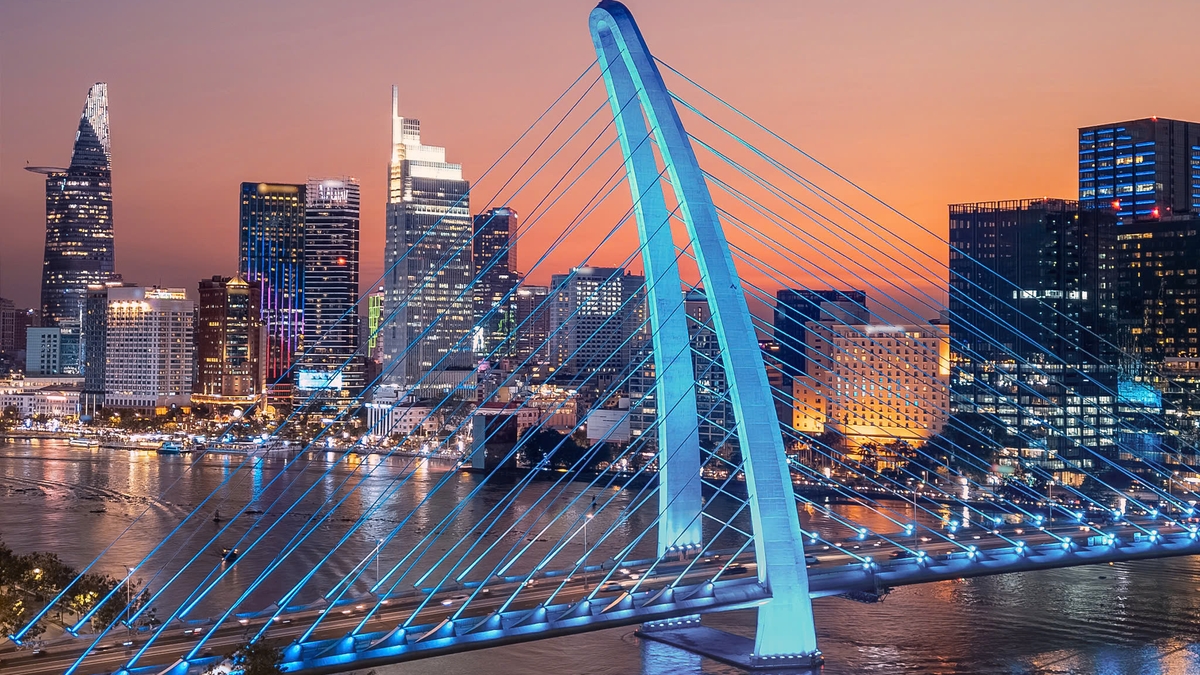
![[Photo] Standing member of the Secretariat Tran Cam Tu chaired a meeting of the Standing Committee of the Organizing Subcommittee serving the 14th National Party Congress](https://vphoto.vietnam.vn/thumb/1200x675/vietnam/resource/IMAGE/2025/10/24/1761286395190_a3-bnd-4513-5483-jpg.webp)

![[Photo] Prime Minister Pham Minh Chinh meets with South African President Matamela Cyril Ramaphosa](https://vphoto.vietnam.vn/thumb/1200x675/vietnam/resource/IMAGE/2025/10/23/1761226081024_dsc-9845-jpg.webp)
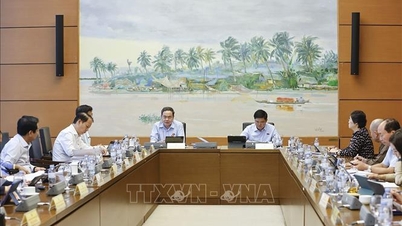

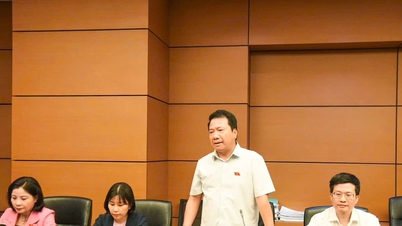

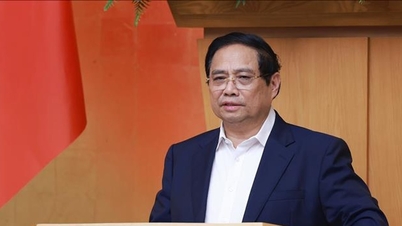
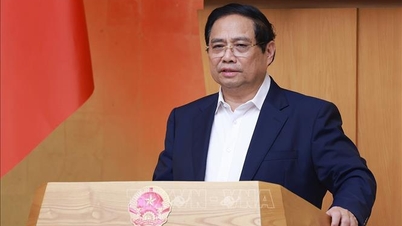


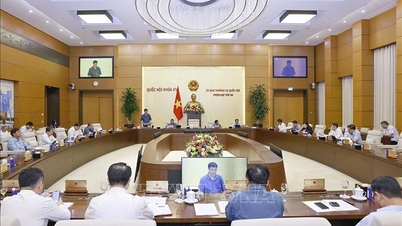





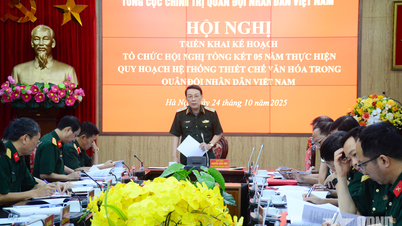











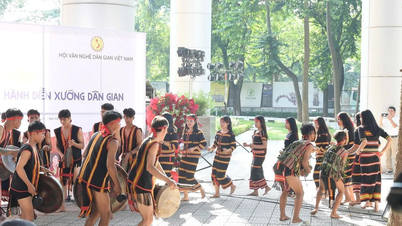





















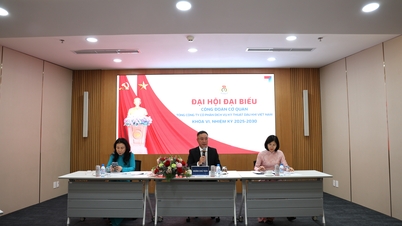


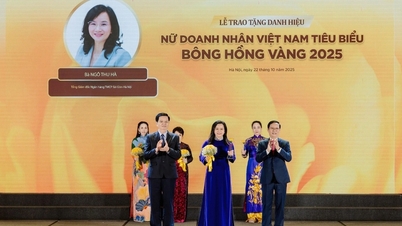
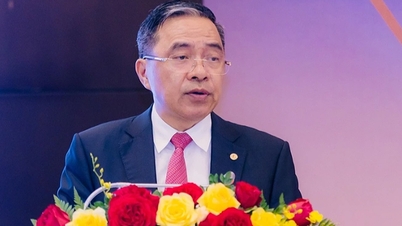






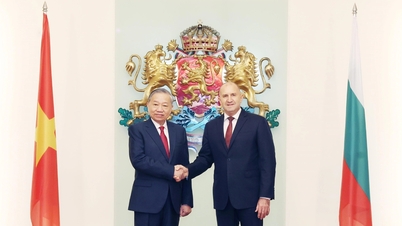


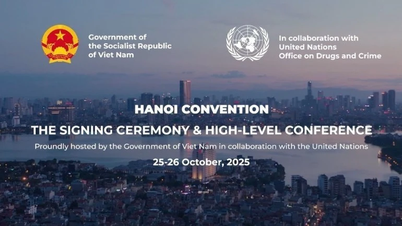
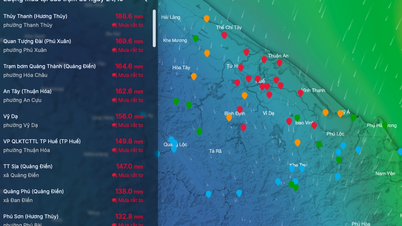
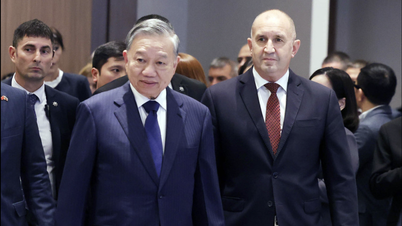
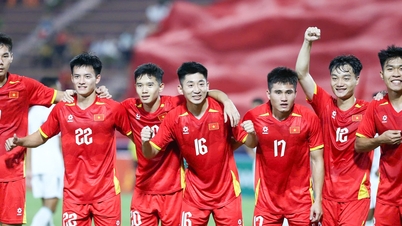
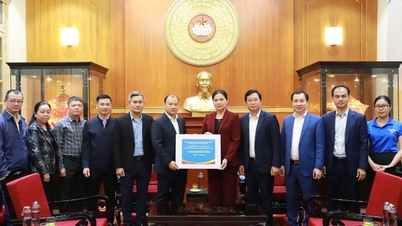

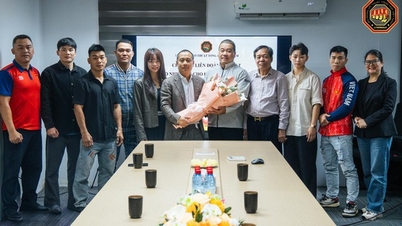
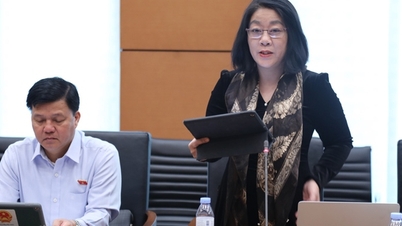
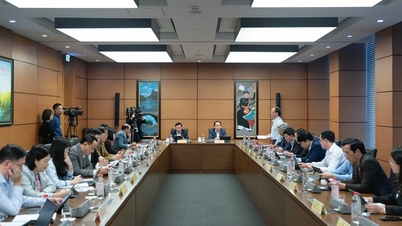
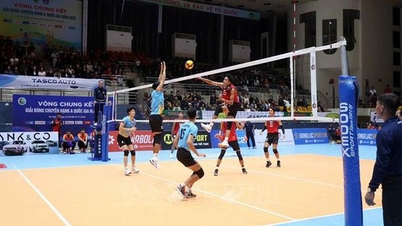



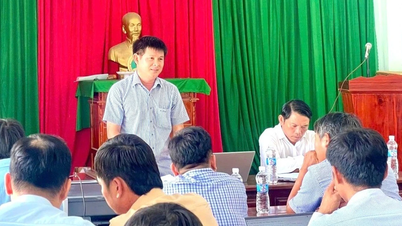

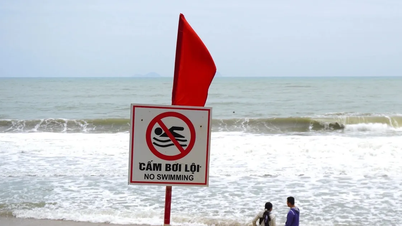


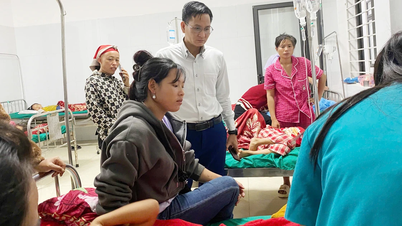

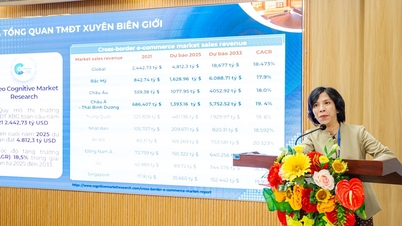















Comment (0)